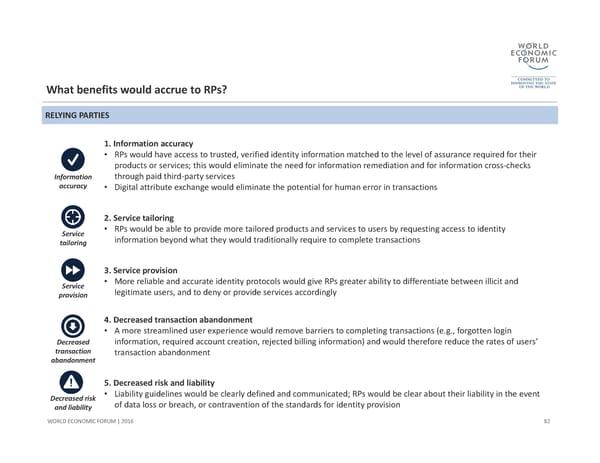What benefits would accrue to RPs? 82 WORLD ECONOMIC FORUM | 2016 RELYING PA R T I E S Service tailoring 2. Service tailoring •RPs would be able to provide more tailored products and services to users by requesting access to identity information beyond what they would traditionally require to complete transactions Service provision 3. Service provision •More reliable and accurate identity protocols would give RPs greater ability to differentiate between illicit and legitimate users, and to deny or provide services accordingly Decreased transaction abandonment 4. Decreased transaction abandonment •A more streamlined user experience would remove barriers to completing transactions (e.g., forgotten login information, required account creation, rejected billing information) and would therefore reduce the rates of users’ transaction abandonment Decreased risk and liability 5. Decreased risk and liability •Liability guidelines would be clearly defined and communicated; RPs would be clear about their liability in the event of data loss or breach, or contravention of the standards for identity provision 1. Information accuracy •RPs would have access to trusted, verified identity information matched to the level of assurance required for their products or services; this would eliminate the need for information remediation and for information cross‐checks through paid third‐party services •Digital attribute exchange would eliminate the potential for human error in transactions Information accuracy
 A Blueprint for Digital Identity Page 82 Page 84
A Blueprint for Digital Identity Page 82 Page 84